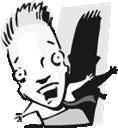Use these RSV natural remedies for this viral infection. Symptoms include congestion, cough, shortness of breath, nose flares (key sign), wheezing, fever, croupy coughs. High fever and colored mucus discharges may be present. With RSV may be complications such as pneumonia, ear infections or even respiratory failure in infants. RSV is usually spread by cough or touching people or objects infected with the virus, and usually happens in the winter.
Medical treatment for RSV happens when symptoms are critical and the person or small child can’t breathe well. Then hospitalization may be necessary. They may use a ventilator and antiviral medications that may be life saving.
Natural perspective on RSV – it is a viral disease that affects those who have the susceptibility, and also those with a toxic accumulation of mucus from poor food selection or other health reasons. There can be prevention by wiser food habits. Natural remedies for RSV need to be used at an early stage but are useful at the critical stage if medical treatment cannot be found.
Diet helps prevent by eliminating dairy products especially in children. Adults need to eliminate alcohol, tobacco, fast foods, coffee, black tea.
Specific natural remedies for RSV in adults include NAC (n-acetyl-cysteine). It can be a helpful natural supplement for RSV at 2 capsules two times a day to reduce mucus.
Natural Healing Protocol — First, choose an herb. Then add a cell salt or cell salt solution. Finally, choose the homeopathic remedy that fits your situation best. Combining supplements will do more to support your body’s ability to function properly than using just one. Your ability to heal will depend on the severity and length of time symptoms have been present.
Herbs for RSV
Herbs are plants valued for their specific strengthening/ tonifying properties.
Use herbs with cell salts and homeopathic remedies. Herbs for RSV may be used in tea, capsule, or glycerin tincture.
Elecampane – a favorite herb for RSV as it activates the immune system, may be antiviral and acts as a respiratory decongestant.
Hyssop – decongestant herb for RSV which reduces mucus.
Yarrow – increases circulation, increases sweating to reduce toxins and improves respiratory function.
Cell Salts to Help with RSV
To make a cell salt solution, put up to 10 tablets of each cell salt in a 16- to 24-ounce bottle; fill with water and swirl to dissolve tablets. Sip throughout the day.
#3 Calc sulph 6X – to reduce mucus and toxins
#4 Ferr phos 6X – to activate the immune system
#5 Kali mur 6X – to reduce mucus and support the respiratory system
RSV Homeopathic Remedies
Homeopathic remedies are non-toxic natural medicines safe for everyone including infants and pregnant or nursing women. You may use 6X, 30X, 6C or 30C potencies.
Antimonium tart – nostrils flaring (because of congestion, not enough air) with rattling mucus in the chest, gas and bloating.
Belladonna – after cooling too quickly, too much sun, or from irritability; comes on sudden, extreme spasms; senses over stimulated; skin dry, hot, red; sweating after respiratory crisis; worse 3 am or 3pm or 11 pm; better from rest, in the dark worse from being jarred, confusion, and cold air.
Cuprum metallicum – bronchial spasms, cramps in calf; nausea; blue lips; better warmth and rest, cold drinks; most symptoms are at night.
Euphorbium – spasmodic and irritating cough day and night; chest feels warm; coughing; worse from sitting; must move around;
Hyoscyamus – motor nerve restlessness; irritability, spasms of arms and legs,; bronchial spasms; jealous, fearful, oppositional; worse from cold, lying down and stimulation; better warmth and sitting, moving around.
Ipecacuanha – when there is a clean tongue and the person coughs until they vomit.
Lobelia – bronchial spasms; weakness, nausea, cold sweat, pale face; asthma or rsv comes on slowly; worse smoking and cold application; better warmth.
Luffa operculata – specific for breathlessness from the least effort; feels better in fresh air; worse in a room in dry air.
Lycopodium – nose flaring; liver problems, gas and bloating; worse 4 to 8 pm.
Pulsatilla – when the person weeps easily, wants open air; mucus is thick and creamy and changeable.
Stramonium – hot head, icy feet; fear of water; bronchial spasms; irritability with great fear; breathless; moods alternate from laughing to negativity; sleepy but can’t sleep, worse in dark; better light.
